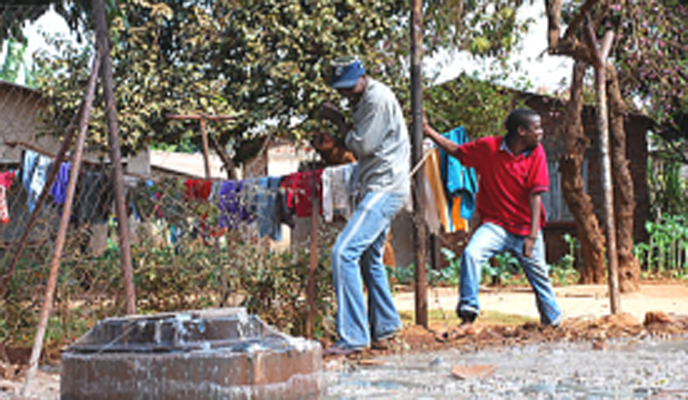
As the nation is gripped by political drama and the obvious obsession with the 2018 elections, there is something important that is not getting the attention it deserves and that is the typhoid outbreak in Harare.
At least 15 cases have been confirmed and another 125 are being investigated in Harare, which could be the tip of a very big iceberg, yet not much attention is being given to this outbreak.
What compounds the latest typhoid outbreak is that we are in the middle of a drought and that could mean water shortages, which in themselves exacerbate the problem.
 One thing authorities have to accept is that vendors are here to stay and instead of fighting them, they should engage and use them to spread public health messages, particularly those that sell fresh food and fruit.
One thing authorities have to accept is that vendors are here to stay and instead of fighting them, they should engage and use them to spread public health messages, particularly those that sell fresh food and fruit.
Harare City Council has already warned of water cuts and shortages until July and certainly this will mean the problem is likely to worsen before it is solved.
Already some areas in Harare go for days without water, while the council regularly cuts water reticulation services to some areas during the weekend, and these are the conditions where waterborne diseases thrive.
This is before we even discuss the quality of water being distributed by the City of Harare and this points to a major problem in the near future.
Our leaders have the habit of being reactive and rather than being proactive and our advice to them is that this is the time they should start awareness and publicity campaigns, to inform the public on what they can do before this outbreak spreads.
- Chamisa under fire over US$120K donation
- Mavhunga puts DeMbare into Chibuku quarterfinals
- Pension funds bet on Cabora Bassa oilfields
- Councils defy govt fire tender directive
Keep Reading
As they say, prevention is better than cure, the government, stakeholders and the City of Harare should be putting all their efforts that this disease is nipped in the bud.
The 15 cases that have been confirmed are far too many and there is no reason why Zimbabweans are succumbing to a 19th century disease.
This speaks to a lackadaisical approach by authorities on public health matters and betrays a lack of planning and foresight.
To help the authorities, we would like to point out that when there are water cuts or shortages, the government and Harare City Council should make sure that they provide alternative points for people to collect the precious liquid, at least for use in the toilets and to wash their hands.
If the council is failing to collect garbage, then they should advocate for controlled burning of rubbish, because during the rainy season, this litter serves to collect water and this could accelerate the outbreak of waterborne diseases, like typhoid and cholera.
Also in places where there are high volumes of people, like bus and kombi terminuses, authorities should ensure there is adequate running water at all hours, and that these places are kept clean at all times, as people that frequent these areas are vectors for waterborne diseases.
One thing authorities have to accept is that vendors are here to stay and instead of fighting them, they should engage and use them to spread public health messages, particularly those that sell fresh food and fruit.
It is unjustifiable that we have been caught flatfooted on waterborne diseases and with forward planning authorities should ensure that such outbreaks are a thing of the past.











